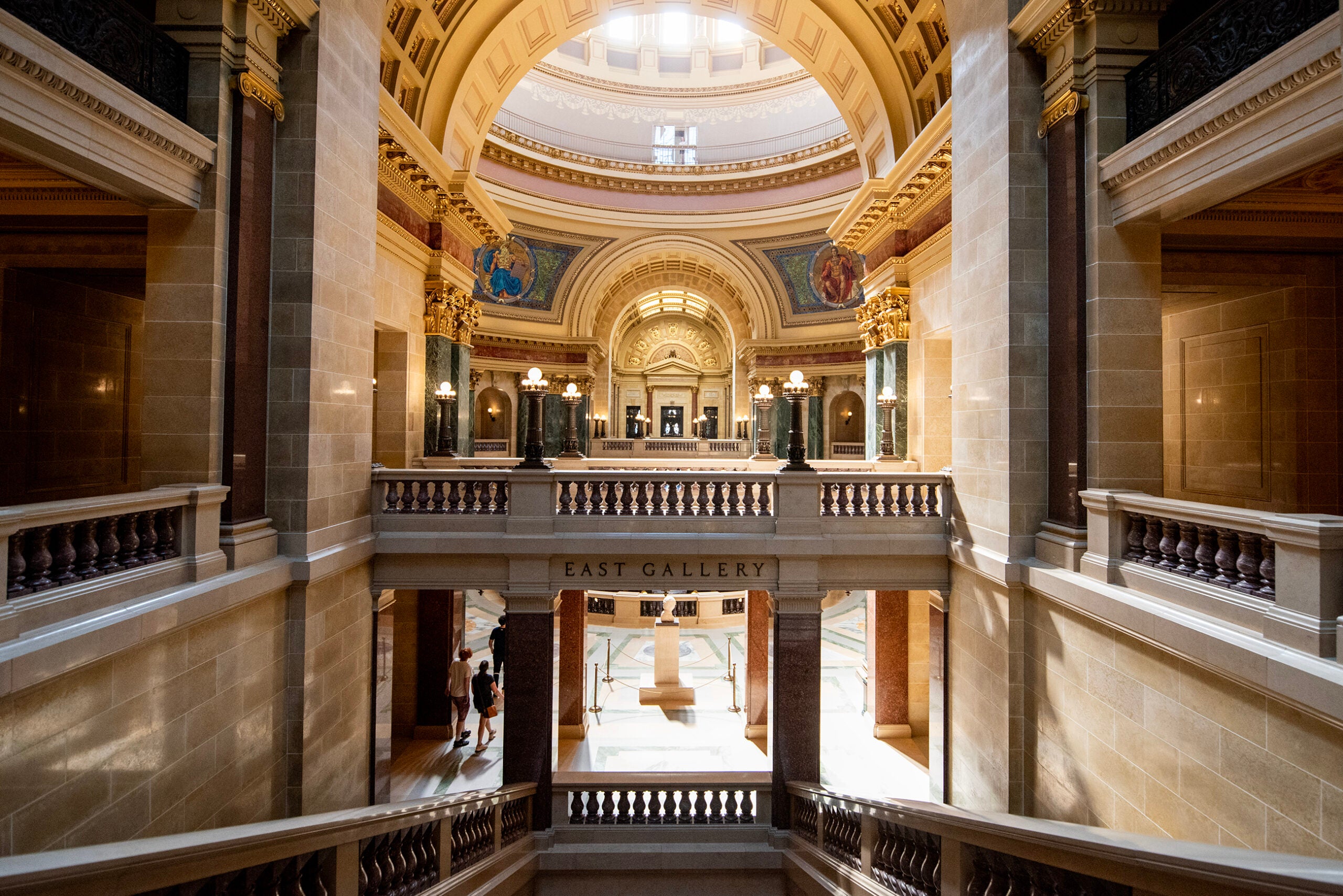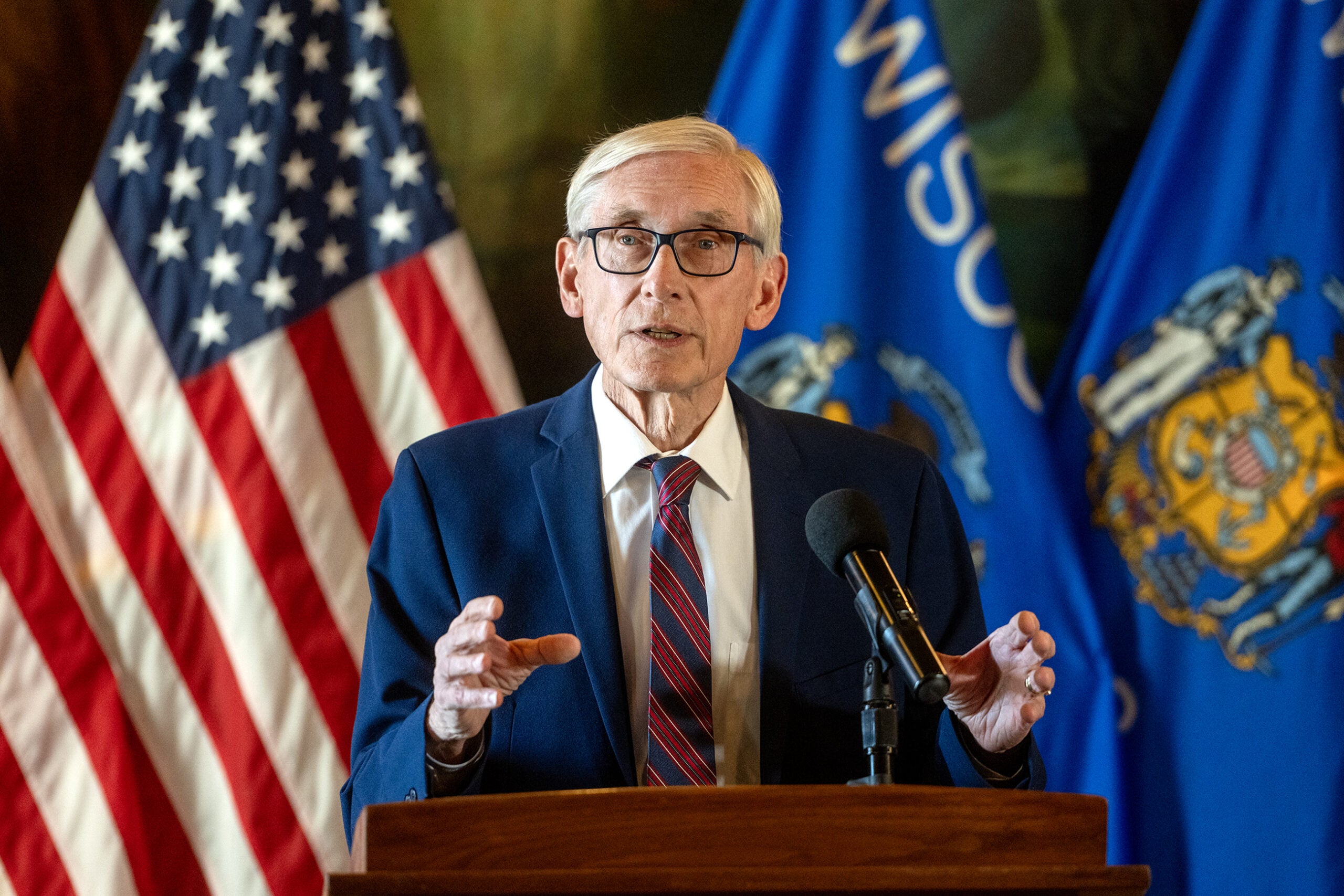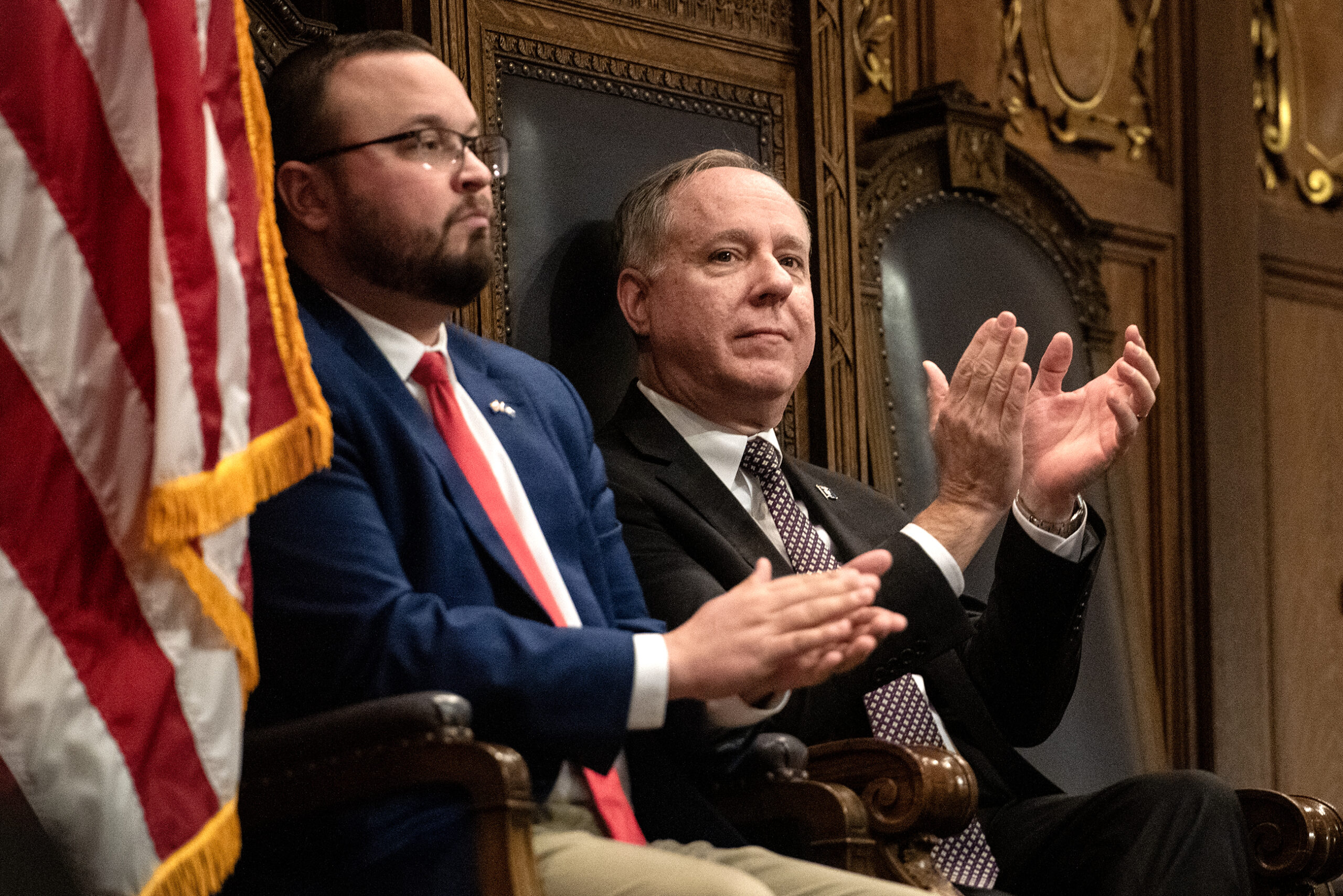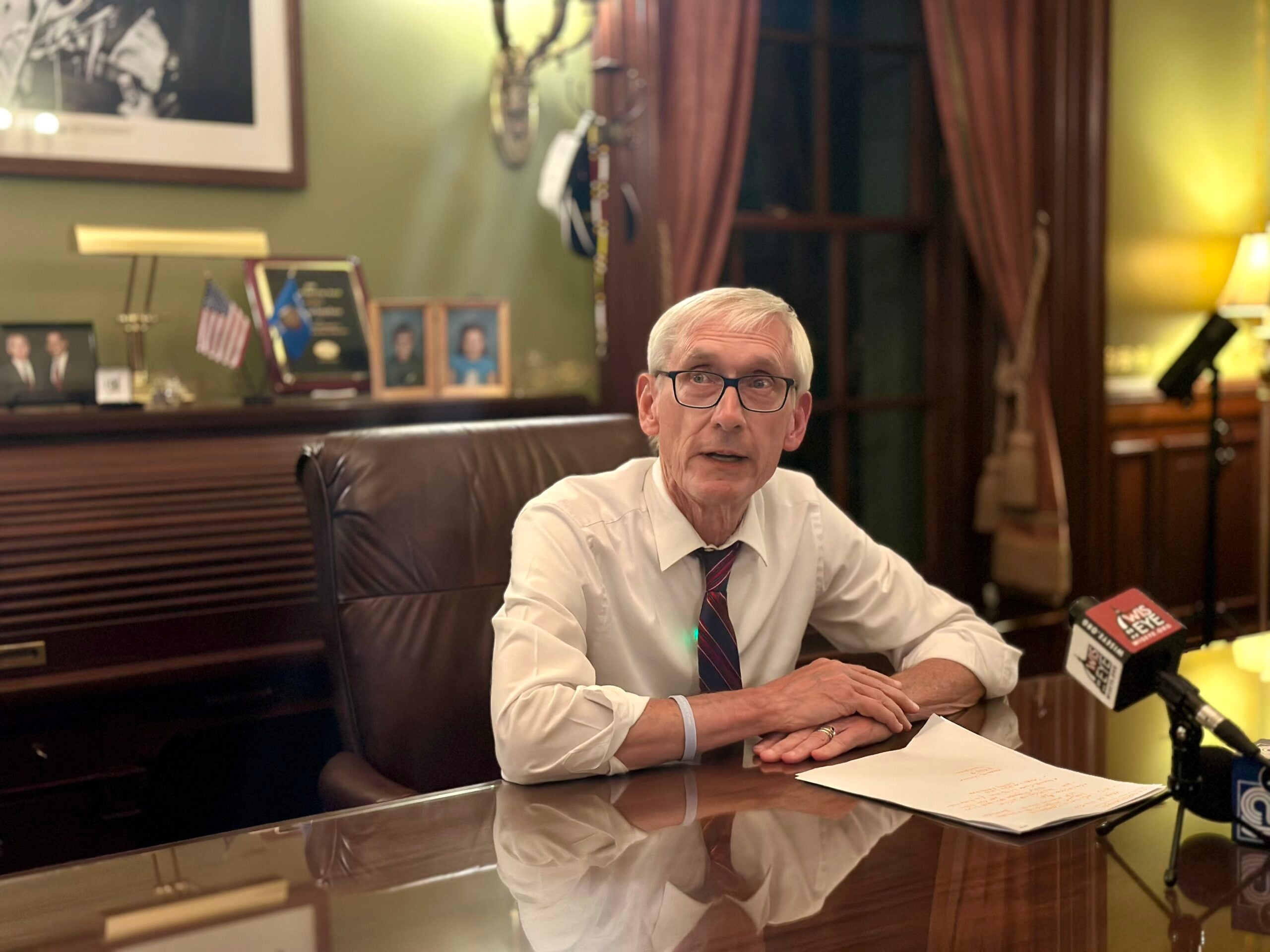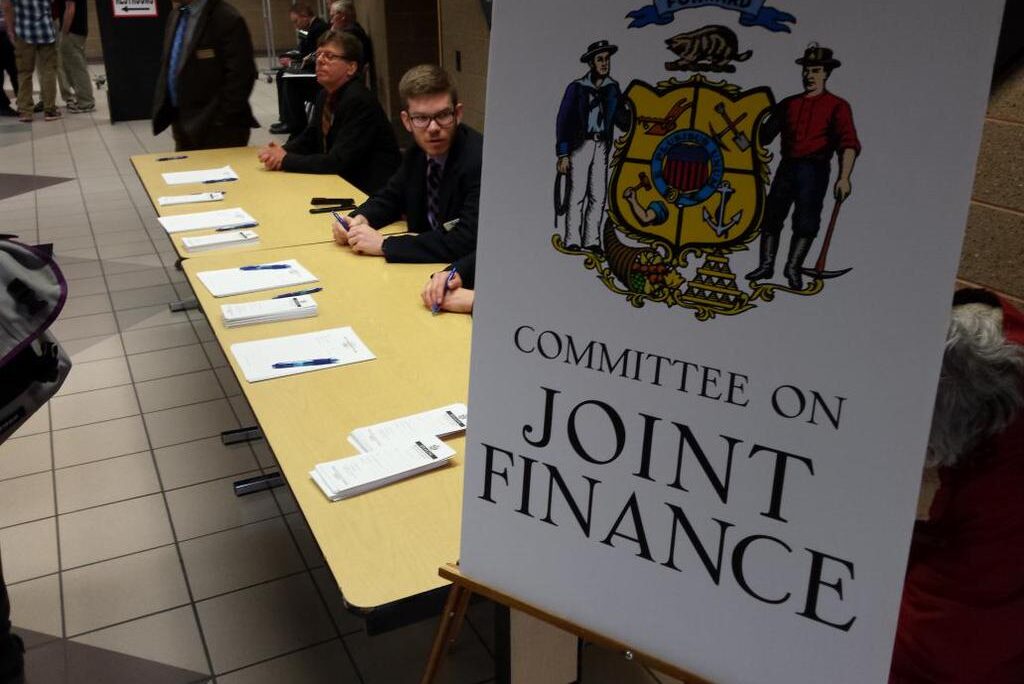A tentative bipartisan deal between Gov. Tony Evers and Republican leaders in the state Legislature calls for billions in new spending on public schools, child care and state universities, along with income tax cuts worth more than $1 billion.
Evers announced the agreement early Tuesday. But as the saying goes, the ink hasn’t dried on the compromise.
In a statement, Evers said it’s contingent on his approval of any final changes to the two-year budget bill from the Republican-controlled Wisconsin Assembly and Senate.
Still, the deal with Wisconsin Assembly Speaker Robin Vos, R-Rochester, Wisconsin Senate Majority Leader Devin LeMahieu, R-Ooostburg, and Senate Minority Leader Dianne Hesselbein, D-Middleton, is notable.
News with a little more humanity
WPR’s “Wisconsin Today” newsletter keeps you connected to the state you love without feeling overwhelmed. No paywall. No agenda. No corporate filter.
Recently, Republicans on the Legislature’s budget-writing committee cancelled a meeting as a small group of GOP senators said they wouldn’t support the budget in its current form. Those Republicans said they preferred to blow past a June 30 budget deadline in order to keep state spending at current levels.
The text of the agreement has yet to be released, but Evers’ statement said it includes the largest increase to the state’s special education reimbursement rate in history, the largest increase to the Universities of Wisconsin in two decades and more than $330 million to support child care centers.
“I am grateful for the months of work that’s gone into getting us to this point today,” Evers said. “I want to thank Majority Leader LeMahieu, Speaker Vos, and Leader Hesselbein for being willing to come to the table so we could get a real and meaningful bipartisan budget done for Wisconsin. I look forward to signing a bipartisan budget that makes these critical investments in our kids, families, and communities across our state.”
In a joint statement, Vos and state Rep. Mark Born, R-Beaver Dam, who co-chairs the Legislature’s Joint Finance Committee, said the deal will lead to investments in important priorities for the state and will save taxpayers “almost $1.5 billion.”
“This budget delivers on our two biggest priorities; tax relief for Wisconsin and reforms to make government more accountable,” Vos said. “This deal brings those investments and reforms together and creates a Wisconsin that works for everyone. I appreciate the willingness of Gov. Evers to work with us to find a bipartisan agreement that funds our mutual priorities and delivers huge wins for the citizens of Wisconsin.”
Another joint statement from LeMahieu and Sen. Howard Marklein, R-Spring Green, who also co-chairs the finance committee, said providing tax relief for middle-class families was the senate’s top priority during the legislative session.
“This compromise will provide meaningful tax relief for retirees and the middle class, stabilize the child care system without making pandemic-era subsidies permanent, and strengthen our schools by reimbursing special education services at a higher rate,” the senators’ statement said.
According to the governor’s office, new spending under the state budget deal will include:
- Nearly a $1.4 billion boost in spendable revenue for K-12 schools, which includes raising the special education reimbursement rate for schools to 42 percent.
- Direct payments of $110 million for child care providers, along with more than $123 million aimed at reducing parents’ out-of-pocket expenses through the Wisconsin Shares child care subsidy program.
- $256 million in new spending on the Universities of Wisconsin, which includes a $100 million campus stabilization fund and more than $94 million to increase wages for UW employees.
- $840 million for UW building projects, which include upgrades to Science Hall at UW-Madison, a renovation of the Health Sciences and Northwest Quadrant complex at UW-Milwaukee, and a library demolition project at UW-Oshkosh.
- $150 million in new spending for the state’s Agricultural Roads Improvement Program.
- The elimination of a sales tax on household utility bills.

Budget compromise includes $1.2 billion in income tax cuts
Under the deal, Evers’ office said income taxes for individuals will decrease by $600 million in each of the next two years, with 82 percent of the tax cut going toward people with adjusted annual gross incomes below $200,000.
Retirees age 67 and up would also be able to exclude up to $24,000 in retirement income from state income taxes. Last year, Assembly Republicans passed a tax cut proposal that would have exempted up to $75,000 in retirement income for those 65 and older, a proposal that Evers vetoed.
Deal includes bipartisan effort to stabilize Medicaid
In a bipartisan effort to get ahead of federal cuts to Medicaid, the budget deal would increase the state’s Wisconsin Hospital Assessment fee from 1.8 percent to 6 percent of net patient revenues. Those funds are used to bolster the state’s medical assistance trust fund and make supplemental payments back to hospitals.
Under the agreement, 30 percent of the money generated by the increased assessment rate will go into the trust fund, which Evers’ office states will result in more than $1 billion in new investments to Wisconsin hospitals.
“Provisions included in versions of federal reconciliation legislation could prohibit or limit this type of policy change in the future,” the governor’s statement said. “The 2025-27 Biennial Budget may be the last opportunity Wisconsin has to make this policy change, which would efficiently use federal funding to increase hospital reimbursement and decrease the GPR [general purpose revenue] cost of the Medicaid program based on these potentially imminent federal law changes.”
The statement said the state will also fund what as known as the “cost-to-continue” for Wisconsin’s Medicaid program.
Editor’s note: This story was updated Tuesday with comments from GOP leaders.
Wisconsin Public Radio, © Copyright 2026, Board of Regents of the University of Wisconsin System and Wisconsin Educational Communications Board.



